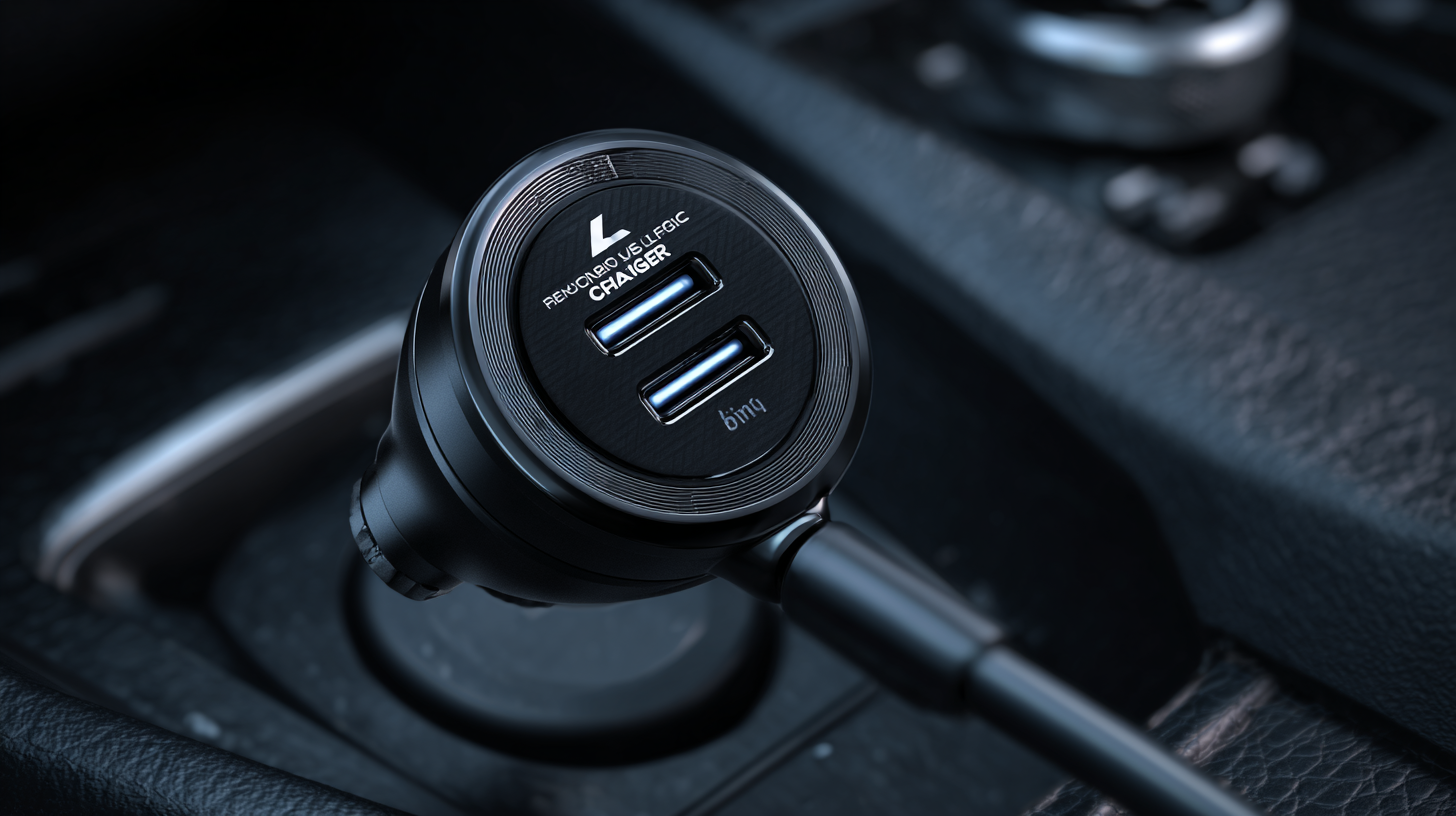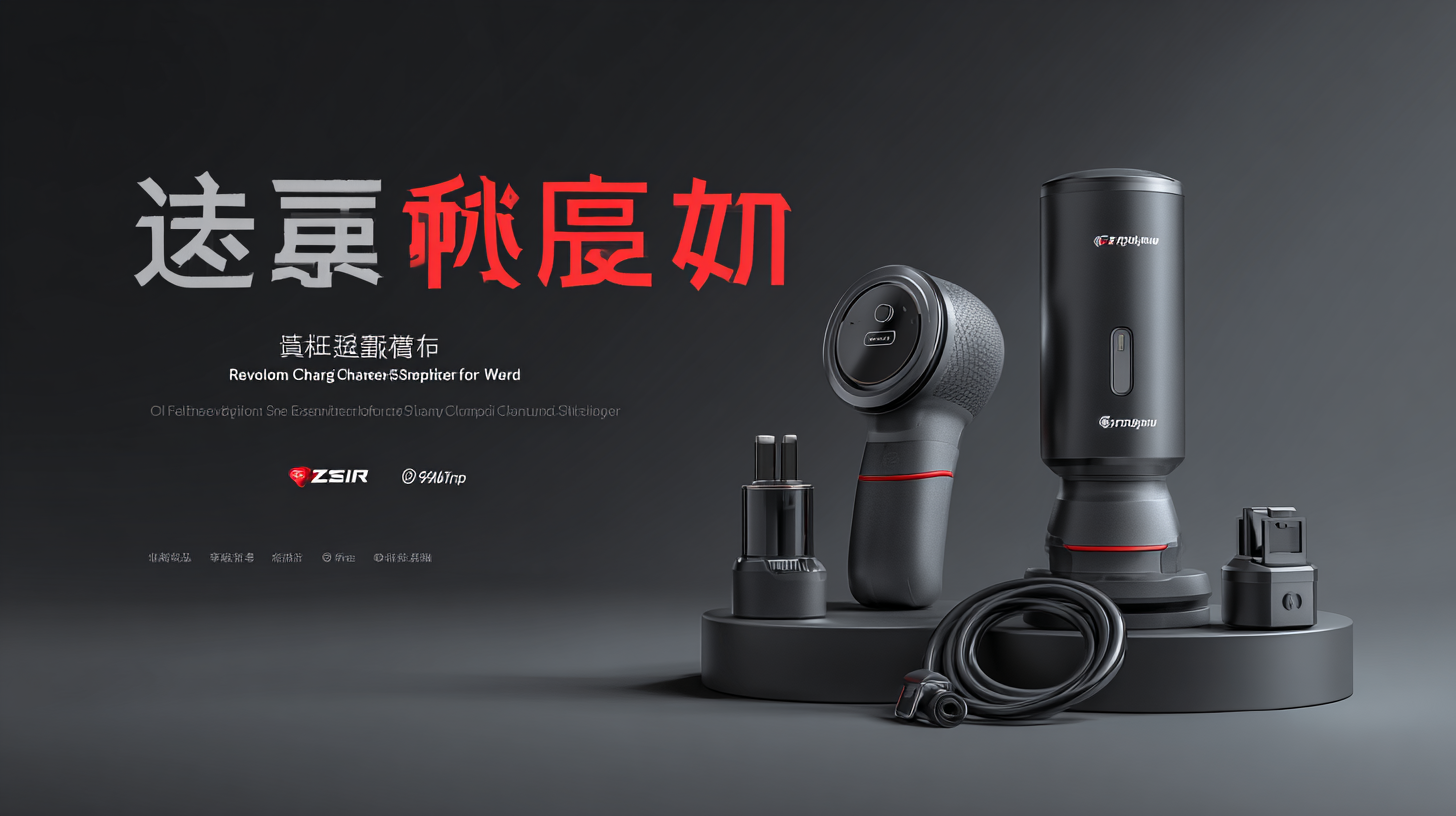Revolutionizing Charging Solutions: China’s Premier Factory Delivers the Best Home Car Charger to the World
As the electric vehicle (EV) market continues to surge, with global sales expected to reach 26 million units by 2030 according to recent projections from the International Energy Agency, the demand for efficient and innovative charging solutions is more critical than ever. Central to this evolution is the "Home Car Charger", which empowers consumers to conveniently charge their vehicles at home, alleviating concerns about range anxiety and infrastructure limitations.

In China, a frontrunner in EV manufacturing, factories are revolutionizing the production of home charging systems, striving to enhance charging efficiency and safety. Reports indicate that over 70% of EV owners prefer home charging options due to cost-effectiveness and convenience, establishing the home car charger as an essential component of the electric vehicle ecosystem. Thus, understanding the technological advancements and market trends associated with home car chargers is vital for both consumers and industry stakeholders alike.
Identifying Key Criteria for Selecting a High-Quality Home Car Charger Supplier
When selecting a high-quality home car charger supplier, potential buyers should focus on several key criteria to ensure they invest in a reliable and efficient product. First and foremost, it's essential to evaluate the manufacturer's reputation and expertise in the electric vehicle charging industry. Suppliers with a proven track record are more likely to offer durable and technologically advanced chargers that meet international safety and performance standards.
Another crucial factor is the variety of charging solutions offered. A reputable supplier should provide a range of options, including different charging speeds and compatibility with various electric vehicle models. Additionally, customer support and warranty services play a significant role in the decision-making process. A supplier that offers comprehensive after-sales support will make the transition to electric vehicle ownership smoother, providing peace of mind that any issues can be promptly addressed.
By considering these criteria, consumers can select a supplier that not only delivers quality products but also maintains a commitment to customer satisfaction.

Understanding the Role of Product Certifications in Charging Solutions
When it comes to charging solutions, product certifications play a crucial role in ensuring safety, reliability, and efficiency. For consumers looking to purchase home car chargers, understanding these certifications can be the key to making an informed decision. Certifications such as CE, UL, and FCC not only affirm that a charger meets strict safety standards but also demonstrate the manufacturer’s commitment to quality. These labels act as assurance for users, indicating that the chargers have undergone rigorous testing and are built to withstand the demands of daily use.
Moreover, product certifications contribute significantly to consumer trust. In a rapidly evolving market, where technology and safety standards are constantly advancing, reliable certifications are essential to mitigate risks. For instance, a charger that is certified for energy efficiency can help consumers lower their electricity bills while being environmentally friendly. As China's premier factory rolls out its best home car charger, the emphasis on high standards and certifications underscores the goal of delivering cutting-edge technology that meets global expectations. By prioritizing certified products, consumers can feel confident that they are investing in safety and efficiency for their electric vehicles.
Evaluating Supplier Production Capabilities and Technological Advancements
In the rapidly evolving landscape of electric vehicles, the significance of robust supplier production capabilities and technological advancements cannot be overstated. China's premier factory has risen to the forefront by leveraging advanced technologies in the manufacturing of home car chargers. This commitment to innovation is not just about meeting consumer demand; it also reflects a broader trend where the digital transformation of industries is accelerating, weaving technology into the very fabric of supply chains.
The robust growth of intelligent computing power in China, which surged by 74.1% in 2024, underlines the critical role that such advancements play in enhancing production capabilities. As companies strive to adapt to the fast-paced technological landscape, optimizing supply chain management becomes imperative. The integration of digital tools ensures streamlined processes, minimizing disruptions from global issues such as logistics delays and labor strikes. This focus on collaboration between suppliers and manufacturers fosters a symbiotic relationship that promotes not only efficiency but also sustainability, aligning with global efforts toward a greener economy. The innovations from this factory exemplify the potential of modern supply chains to create new opportunities not only for domestic markets but also for consumers worldwide.
Revolutionizing Charging Solutions: China’s Premier Factory Delivers the Best Home Car Charger to the World
| Supplier Region | Annual Production Capacity (Units) | Technological Features | Sustainability Practices | R&D Investment (Million USD) |
|---|---|---|---|---|
| Eastern China | 500,000 | Smart Charging, Mobile App Integration | Solar Power Usage | 25 |
| Southern China | 600,000 | Fast Charging, Overload Protection | Recycled Materials in Production | 30 |
| Northern China | 700,000 | Smart Grid Compatibility | Water Conservation Measures | 20 |
| Western China | 450,000 | User-Friendly Interface | Energy Efficiency Standards Compliance | 15 |
The Importance of After-Sales Support and Customer Service in Supplier Relationships
In today’s fast-paced automotive industry, investing in top-notch after-sales support and customer service is crucial for maintaining robust supplier relationships. When consumers purchase home car chargers, the expectation isn't just for a quality product but also for reliable support when issues occur. A well-established manufacturer can enhance customer loyalty by providing responsive assistance and addressing queries effectively. This approach not only fosters a positive experience but also drives repeat business.
Tip 1: Always ensure that suppliers offer comprehensive support plans. These should include easy access to customer service, warranty details, and troubleshooting guides. Such transparency can significantly enhance customer satisfaction.
Tip 2: Effective communication channels are vital. Suppliers should provide multiple ways for customers to get in touch, including live chat, email, and phone support. Quick response times can elevate a customer's impression of the brand.
A focus on after-sales service can set suppliers apart in a competitive market. By prioritizing customer satisfaction, manufacturers not only build lasting partnerships but also encourage customers to advocate for their brand.
How to Conduct Effective Supplier Audits and Assess Quality Assurance Practices
Conducting effective supplier audits is crucial for ensuring the quality of products in any manufacturing process, particularly in industries like automotive where safety and reliability are paramount. A comprehensive audit should begin with a clear understanding of the supplier’s quality assurance practices. This includes reviewing their certifications and compliance with international standards, such as ISO 9001. By assessing their quality management systems, companies can gauge the level of commitment a supplier has towards maintaining excellence in production.

In addition to the documentation, on-site inspections play a vital role in evaluating a supplier’s operational capabilities. These visits allow for a hands-on assessment of the manufacturing environment, workforce training, and adherence to best practices. Engaging in dialogue with key personnel during these audits can reveal insights into the culture of quality within the organization. By combining thorough documentation reviews with practical observations, businesses can ensure that suppliers not only meet required standards but also foster a continuous improvement mindset, ultimately delivering the best products to end-users.
